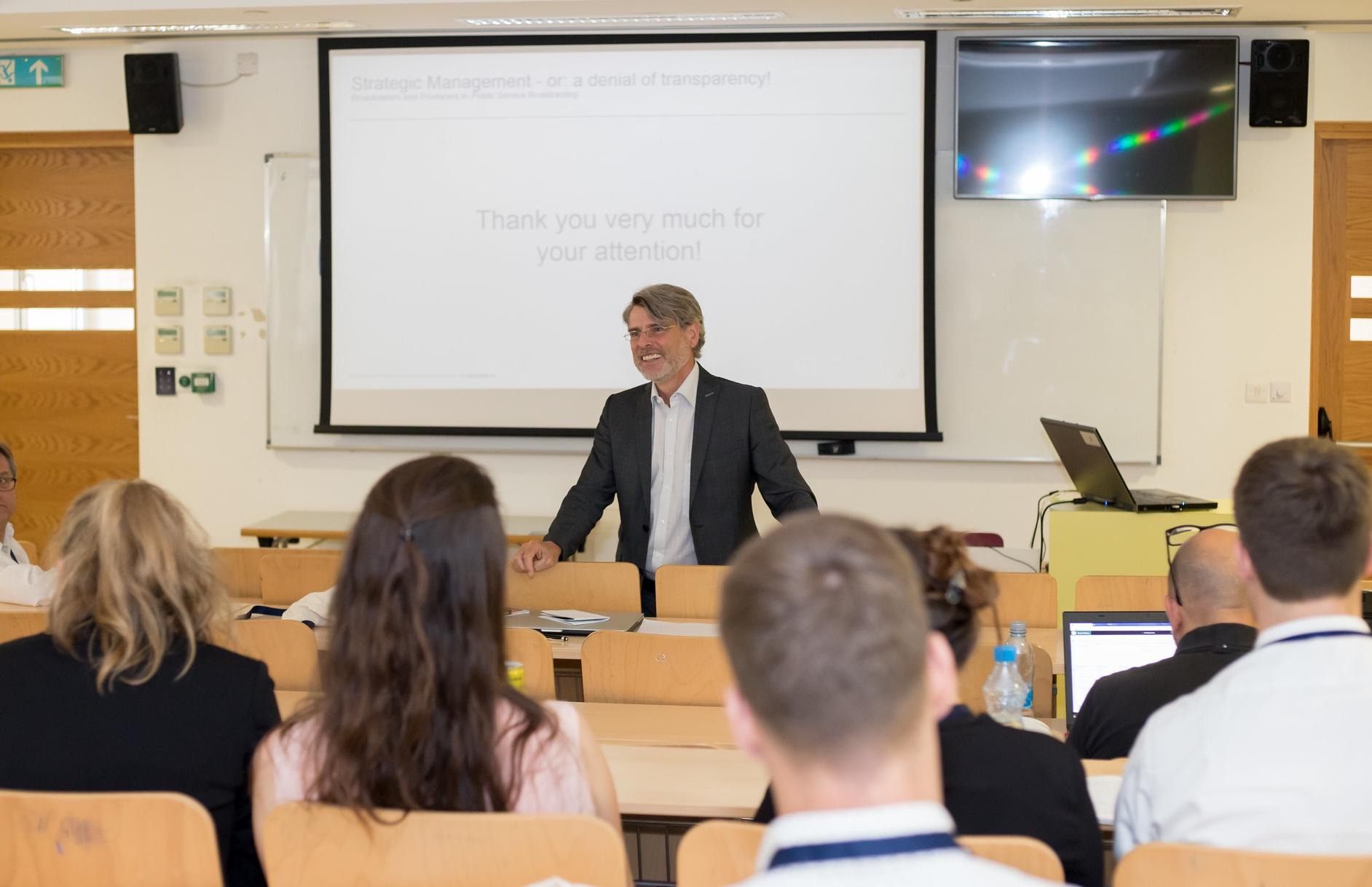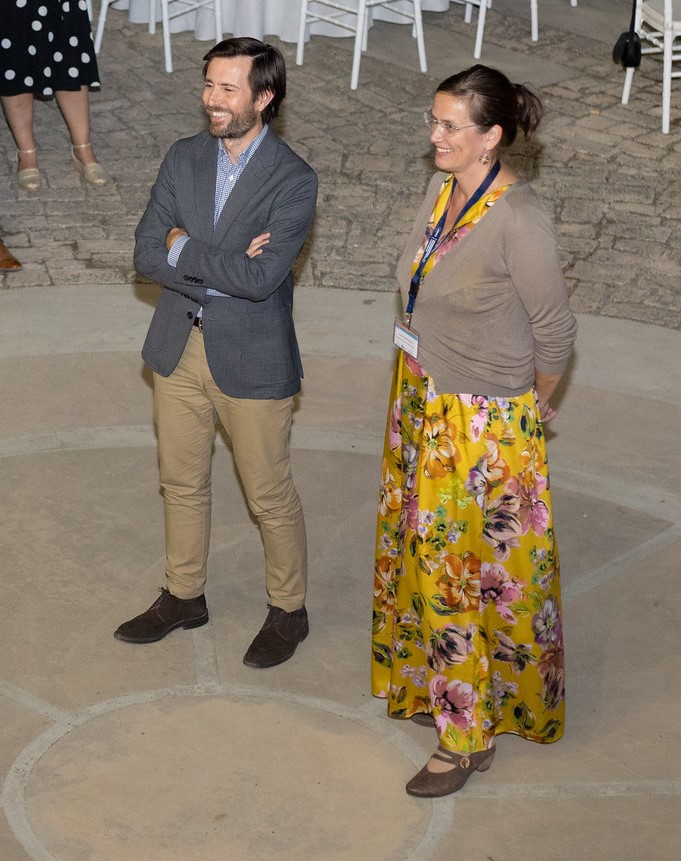Putting sustainability on the media management map
Research conferences are an important part of academic life. They are a place where scholars can present research ideas, engage in discussions, and foster new collaborations. Sometimes conferences can stimulate interest in a new direction for a research field, and this is exactly what the Media, Management and Transformation Centre (MMTC), are hoping might happen at this year's emma2021 conference External link, opens in new window..
“Sustainability is a hot topic in society, but almost no media researcher has been talking about it, or can really decide what sustainability for media is,” says Joaquin Cestino.
Media Management research
The field of media management is interdisciplinary by its nature. It embraces both communication and cultural studies, and business and management studies to look at the market dynamics, innovations and strategic responses in the media and other industries.
Joaquin Cestino is a researcher at the Media, Management and Transformation Centre (MMTC) at Jönköping International Business School (JIBS). He’s also organiser of emma2021, the annual conference of the European Media Management Association (emma) that will be hosted by MMTC at JIBS from 27-29 October. The theme of the conference is “Media Management and Sustainability”, and Joaquin Cestino is keen to see what researchers make of it.
“As a research field, we are still exploring the boundaries of what media management actually is. Introducing sustainability as a significant new theme is exciting as it pushes us to define what a media organisation is, what media management is, and what sustainability means in these contexts. We are hoping this conference will open up the conversation and signal a new research direction for our field.”

How media organisations transform themselves in order to persist and survive is just one of the sustainability topics that will be discussed in this year's emma conference. (image: Unsplash)
"...for us this conference is also an interesting way of building on our legacy and further developing an important topic area for the centre and for the research field"
Getting a paper accepted
Submitting a paper to a conference is one thing, getting it accepted is another. For emma2021, each paper had two or three reviewers. Each gave constructive feedback on the paper in question. Even if the paper isn’t accepted, the feedback alone can be very valuable for the researcher. Reviewers take time to give the author their thoughts on developing their paper (Did you think about going in this direction? Have you considered reading this author? And so on…). What the reviewers are looking for in a successful paper is relevance to the theme, good research methods, interesting empirical data, and a clear contribution to the research field as well as practical implications for the media management practitioners.
Does the theme resonate with scholars?
To see what ideas on sustainability and media management researchers might have, Joaquin and his team put out a ‘call for papers’ in early spring 2021. A call for papers is a way of asking scholars to submit either abstracts or full papers of original, unpublished research that they want to present at the conference.
Picking a conference theme is tricky. Too complex or theoretical and there is a danger that authors misunderstand and submit papers that do not relate well enough to the theme. This year, MMTC seem to have got it just right – a high percentage of papers they received (around 120 in total) had a strong sustainability context, which signals that, for researchers, this topic is ripe for discussion.
“We have received a lot of interesting papers. Some explore sustainability in terms of what media organisations do to persist - for example, how they cope with digitalisation, or the way they use AI to sustain their media operations. Others explore things like how media companies engage in social responsibility or practice diversity and equality,” says Joaquin Cestino.
“We’ve seen very little on the impact these organisations have on sustainability issues at a societal level – for example how their technologies or media production impacts the environment, or how news reporting on sustainability shapes public opinion about climate change or influences responsible consumer behaviour. The absence of these kinds of sustainability topics was a surprise for us,” he admits.
%20conference%20presentation.jpg)
Those presenting their papers at emma2021 will do so in thematically organized sessions which they will share with other presenters. The sessions will have a moderator whose job it is to introduce the speakers, keep time, and to ask and moderate questions. (image: European Media Management Association)
Media is about more than newspapers, radio and tv
For MMTC, sustainability is not a happenchance theme for emma2021 – it’s one of the new core research areas for the centre. In recent years, MMTC has broadened its focus beyond media to include the study of other industries in process or need of transformation. Professor Leona Achtenhagen, Director of MMTC, therefore sees emma2021 as an exciting opportunity:
“Media research is MMTC’s legacy, so for us this conference is also an interesting way of building on our legacy and further developing an important topic area for the centre and for the research field. It’s important that we get rid of the “silo” around media management and make sure the topics we research are important to a non-media audience. Sustainability is an interesting topic as it is relevant to the way many different organisations manage and transform themselves, not just those we perceive as traditional media industries.

Conference organizer Joaquin Cestion (left) and MMTC Director Leona Achtenhagen pictured here at emma2019 which was held at Cyprus University of Technology in 2019. (image: European Media Management Association)
Journal of Media
Business Studies
Founded by MMTC, this journal is devoted to research that explores the dynamics of media businesses, broadly defined, studying their creation, operation, marketing, distribution and consumption. It has a particular interest in the creation, operation, marketing, distribution and consumption of media businesses and their products, including newspapers, magazines, television, music, film, videogames, literature, advertising, digital/social/new media among others.
The end goal
For those presenting their papers at the conference, the resulting discussions and feedback they will get are invaluable, and a huge step in getting their research to the stage where it might be accepted for publication in journals or books. Furthermore, researchers that win the coveted ‘Best Paper Award’ at emma2021 could get their papers published in a special issue of the Journal of Media Business Studies (see fact box).
And this is, after all, the end goal of any conference – to help stimulate and produce new body of knowledge that sheds light on challenges society faces. The first green shoots of such knowledge can appear at a research conference, and the fact that sustainability is an emerging research direction for media management scholars, makes emma2021, and all that it can accomplish, a very exciting conference indeed.
Find out more
emma2021 will be taking place at Jönköping International Business School from 27-29 October. Find out more about the conference and the program here. External link, opens in new window.
Contact information
- Assistant Professor
Assistant Professor - Jönköping International Business School
- joaquin.cestino@ju.se
- +46 36-10 1726

